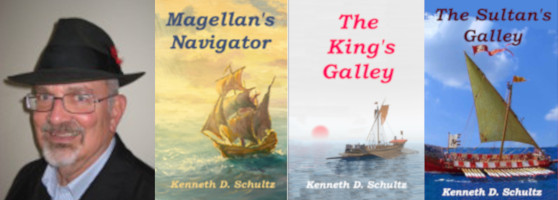I decided to check out what other authors have written about the exhaustion of fossil fuels. Unfortunately, Life Without Oil by Steve Hallett wasn’t of much use. Here’s my review:
I wanted to like this book. I agree with its premise that fossil fuels were a prime driver of the modern age, but that the exhaustion of fossil fuels, especially oil, will severely challenge civilization.
However, I rate the book a two on a one to five scale because it is riddled with page after page of factual mistakes. I also found its analysis of the world after oil to suffer from a strong uber left viewpoint. The author should have cut out most of his dubious historical analysis and beefed up his analysis of the world after oil.
An excellent example of its factual mistakes is the following sentence that starts on page 231: “Winston Churchill … championing of the conversion of the Royal Navy from steam to diesel gave British ships a huge advantage over the clunky old German ships when war (World War I) broke out.” This one sentence errs on the type of engine power of the newer British ships, the timing of the conversion to oil, and the quality of the German ships.
I agree that Churchill was part of the decision to start building battleships powered by fuel oil instead of coal. Beyond that this sentence is completely wrong. The Queen Elizabeth was the first battleship powered by oil. It was not powered by diesel engines, but oil fired its steam turbines. Five battleships were built in this class. They were superb ships.
However, the Queen Elizabeth was not commissioned until December, 1914, four months after the beginning of World War I, so the British had no oil powered ships at the beginning of the war. The British advantage was in number of ships, not the quality of ships. At Jutland, the largest naval battle of World War I, only four of the thirty-seven British battleships and battle cruisers were powered by oil, while the rest still used coal. The Germans had twenty-one coal-fired major ships. “The clunky old German ships” sank three British battle cruisers for the loss of one of their own. The oil fired British ships were probably equal to or somewhat better than the best German ships, but there were not enough of them to give the British a “huge advantage.” The results of Jutland indicate that on the whole the British ships were inferior to the German ships.
On page 256 the author says “Millions of Russians died … and then blew up their own oil fields (in late 1942) around Baku to keep them from the Nazis …” The Russians blew up oil wells as the Nazi advanced in the Caucasus, but not at Baku. Oil production from around Baku in 1943 easily exceeded that in 1942.
I am also surprised that the author doesn’t mention hydraulic fracking, which has caused U.S. oil production to recently soar. Fracking may have environmental problems and oil from fracking will only postpone the inevitable exhaustion of oil, but it is a significant enough development to be mentioned.
So Life Without Oil has an interesting premise but poor execution.
